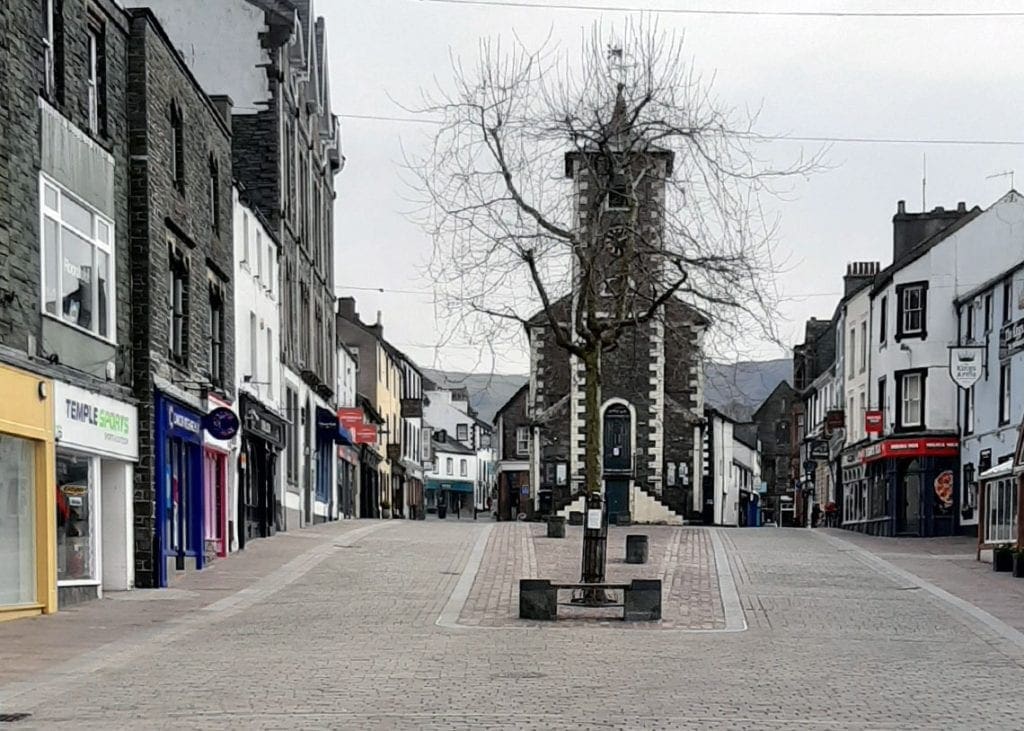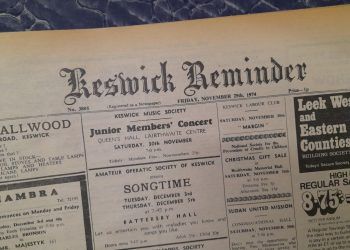
Fears that a monitored CCTV system being installed in Keswick town centre could be abused by “peeping Tom” police officers to spy into people’s homes have been dispelled.
Councillor Peter Terry had raised concerns about the hi-tech cameras that will be put up in Market Square which are so powerful they can identify a face from hundreds of yards away.
The aim of the new system, which should be operational in six to eight weeks, is to help police trace offenders and secure prosecutions in court with videos and images for street crimes such as public disorder, theft or drug dealing.
Keswick Town Council has agreed to pay more than £18,000 for the two CCTV system cameras to be installed and operated as part of Cumbria police’s countywide network. Of that expenditure, £6,000 is from the town council’s police and crime commissioner fund.
However, Mr Terry remained sceptical, telling colleagues at last week’s online town council meeting: “I have an aversion for CCTV cameras. It worries me that these things can look into people’s personal living accommodation.”
Councillor Tony Lywood picked up his point, but said the council had to go ahead with the crime-combating CCTV system in good faith.
“There is an issue here but the issue is outweighed by the public safety and preventing crime so we can live safely,” he said.
Mr Terry was the only person to vote against the town council spending its money on the CCTV system.
After the meeting, Keswick’s deputy mayor, councillor David Burn, contacted Cumbria police regarding Mr Terry’s concerns about people living in nearby residential properties having their privacy compromised.
He received a full explanation from the CCTV information manager at Cumbria police’s control room in Penrith about the checks and controls that are in place for the system to avoid any “inappropriate or inadvertent intrusions” by their operators.
The manager said all operators were trained in line with the surveillance commissioners code of conduct and legislation in respect of an individual’s right to a private life.
“As such, any operator found misusing the system will face dismissal, and we do dip sample viewings,” he said.
Up to 40 other members of staff would be simultaneously viewing the cameras’ images, he added.
“However, as the councillor quite rightly points out, police officers and staff are not necessarily above reproach and in some circumstances it is also conceivable that a person’s right to a private life could be breached unintentionally.
“To that end, we do try and minimise any breach of privacy by the use of ‘privacy masking’ on our system,” he said.
This is a digital device set up on the camera to block out the windows or other private areas such as gardens on residential properties, hotels and holiday lets.
It cannot be removed by police officers or staff without permission of the camera operating company.
“I’m quite happy to mask any window requested, although I would use my own common sense to mask everything appropriate as soon as the camera is online.
“I’m also happy for the councillor to attend headquarters and see the masking in practice, if it will give reassurance,” he added.
Mr Burn was satisfied with the police’s response, saying: “I believe the system will be a huge step forward in helping Keswick stay the very safe place it is.”








